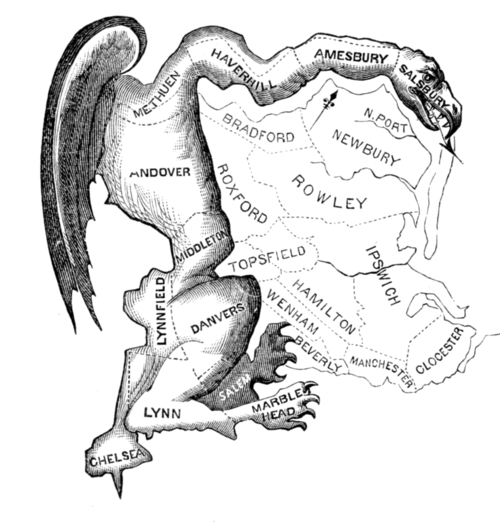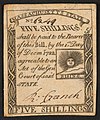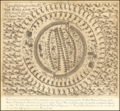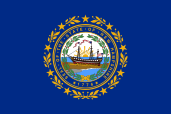Portal:New England
The New England Portal New England is a region comprising six states in the Northeastern United States: Connecticut, Maine, Massachusetts, New Hampshire, Rhode Island, and Vermont. It is bordered by the state of New York to the west and by the Canadian provinces of New Brunswick to the northeast and Quebec to the north. The Gulf of Maine and Atlantic Ocean are to the east and southeast, and Long Island Sound is to the southwest. Boston is New England's largest city and the capital of Massachusetts. Greater Boston is the largest metropolitan area, with nearly a third of New England's population; this area includes Worcester, Massachusetts, the second-largest city in New England, Manchester, New Hampshire, the largest city in New Hampshire, and Providence, Rhode Island, the capital of and largest city in Rhode Island. In 1620, the Pilgrims established Plymouth Colony, the second successful settlement in British America after the Jamestown Settlement in Virginia, founded in 1607. Ten years later, Puritans established Massachusetts Bay Colony north of Plymouth Colony. Over the next 126 years, people in the region fought in four French and Indian Wars until the English colonists and their Iroquois allies defeated the French and their Algonquian allies. (Full article...) Selected article
Dartmouth College is a private, coeducational university located in Hanover, New Hampshire. It is a member of the Ivy League and one of the nine Colonial Colleges founded before the American Revolution. In addition to its undergraduate liberal arts program, Dartmouth has medical, engineering, and business schools, as well as 19 graduate programs in the arts and sciences. With a total enrollment of 5,849, Dartmouth is the smallest school in the Ivy League. Established in 1769 by Congregational minister Eleazar Wheelock with funds largely raised by the efforts of Native American preacher Samson Occom, the College's initial mission was to acculturate and Christianize the Native Americans in the area. After a long period of financial and political struggles, Dartmouth emerged from relative obscurity in the early twentieth century. In 2004, Booz Allen Hamilton selected Dartmouth College as one of the "World's Ten Most Enduring Institutions", recognizing its ability to overcome crises that threatened its survival (most notably in Trustees of Dartmouth College v. Woodward). Dartmouth alumni, from Daniel Webster to the many donors in the nineteenth and twentieth centuries, are famously involved in their college. (Full article...)
Selected biography
Anne Hutchinson, born Anne Marbury (1591–1643), was a Puritan woman, spiritual adviser, mother of 15, and important participant in the Antinomian Controversy that shook the infant Massachusetts Bay Colony from 1636 to 1638. Her strong religious convictions were at odds with the established Puritan clergy in the Boston area, and her popularity and charisma helped create a theological schism that threatened to destroy the Puritans' religious experiment in New England. She was eventually tried and convicted, then banished from the colony with many of her supporters. With encouragement from Providence founder, Roger Williams, Hutchinson and many of her supporters established the settlement of Portsmouth in what became the Colony of Rhode Island and Providence Plantations. After her husband's death she moved to New Netherland near an ancient landmark called Split Rock in what later became The Bronx in New York City. Here all but one of the 16 members of her household were massacred during an attack, the only survivor being her nine-year old daughter, Susanna, who was taken captive. Her well-publicised trials and the accusations against her make Hutchinson the most famous, or infamous, English woman in colonial American history. (Full article...)
Selected picture1812 political cartoon that led to the term Gerrymandering; originally appearing in the Boston Centinel
General images -The following are images from various New England-related articles on Wikipedia.
Did you know (auto-generated)
Related portalsMore did you know...
Selected State
New Hampshire
Incorporated 1776 Co-ordinates 44°N 71.5°W New Hampshire, named after the southern English county of Hampshire, is the 5th least extensive and the 9th least populous of the 50 U.S. states. It became the first post-colonial sovereign nation in the Americas when it broke off from Great Britain in January 1776, and six months later was one of the original thirteen states that founded the United States of America. In June 1788, it became the ninth state to ratify the United States Constitution, bringing that document into effect. New Hampshire was the first U.S. state to have its own state constitution. It is known internationally for the New Hampshire primary, the first primary in the U.S. presidential election cycle. Concord is the state capital, while Manchester is the largest city in the state. It has no general sales tax, nor is personal income (other than interest and dividends) taxed at either the state or local level. (Full article...) WikiProjectsAssociated WikimediaThe following Wikimedia Foundation sister projects provide more on this subject:
Discover Wikipedia using portals |

















































































